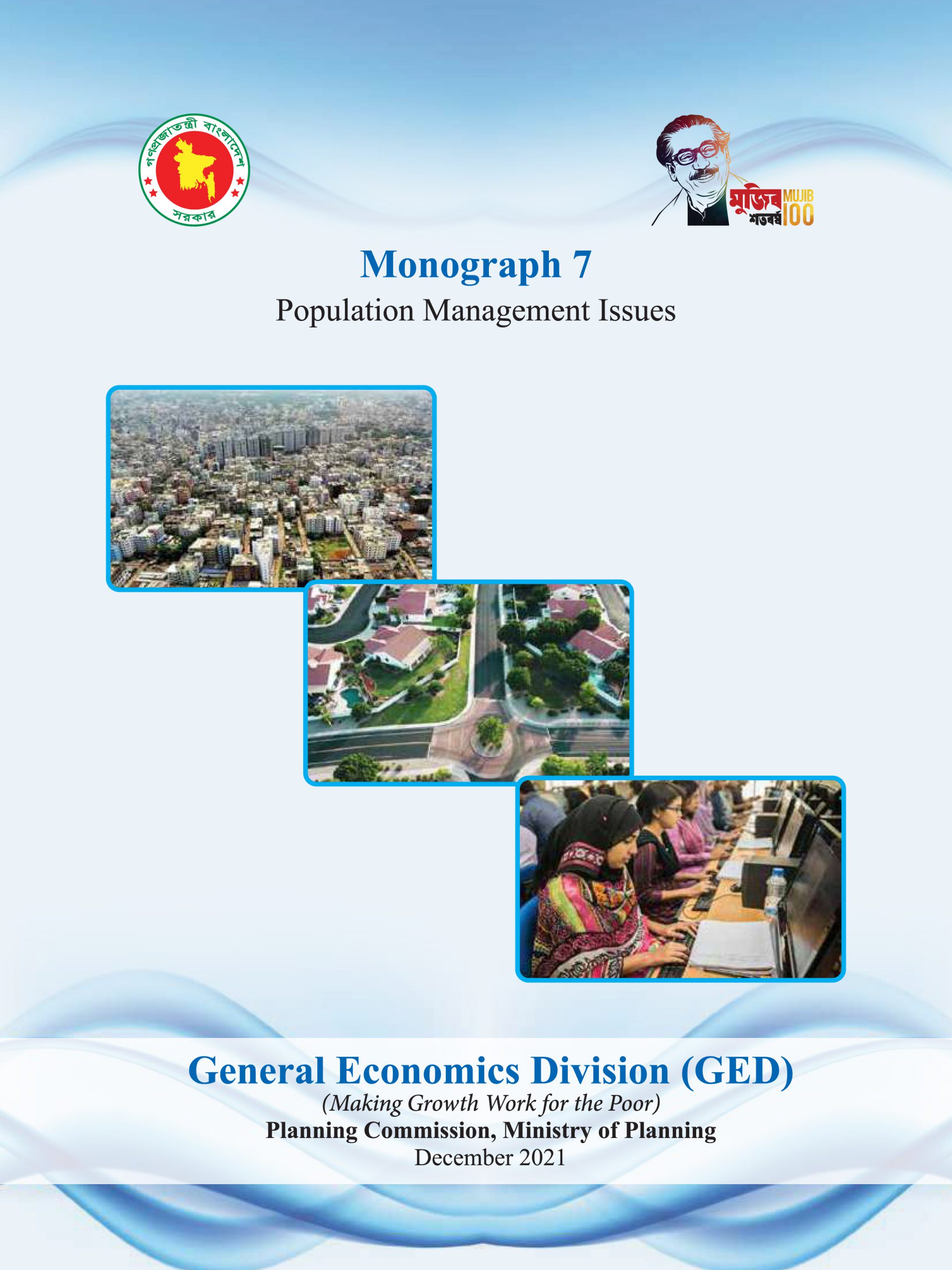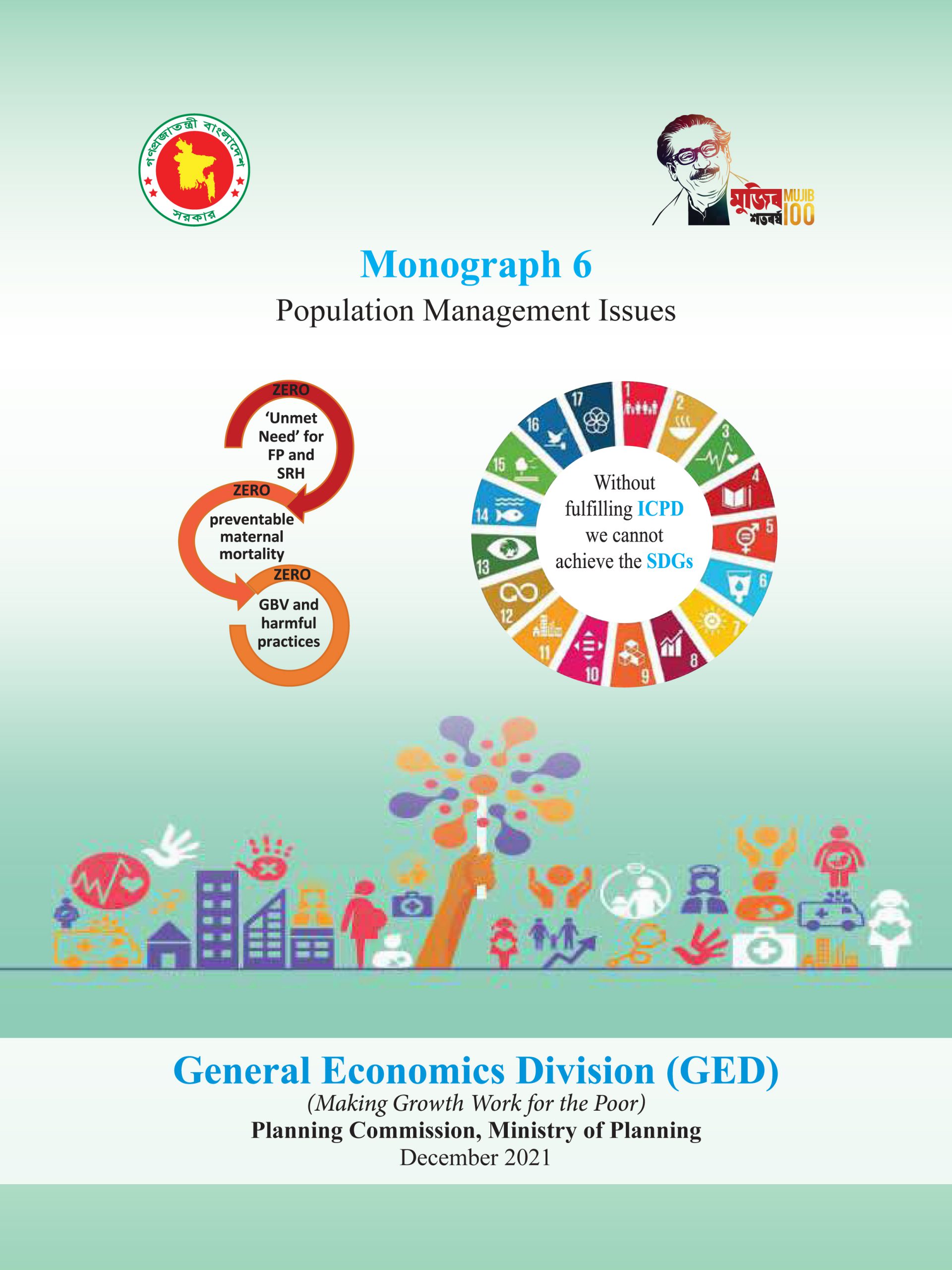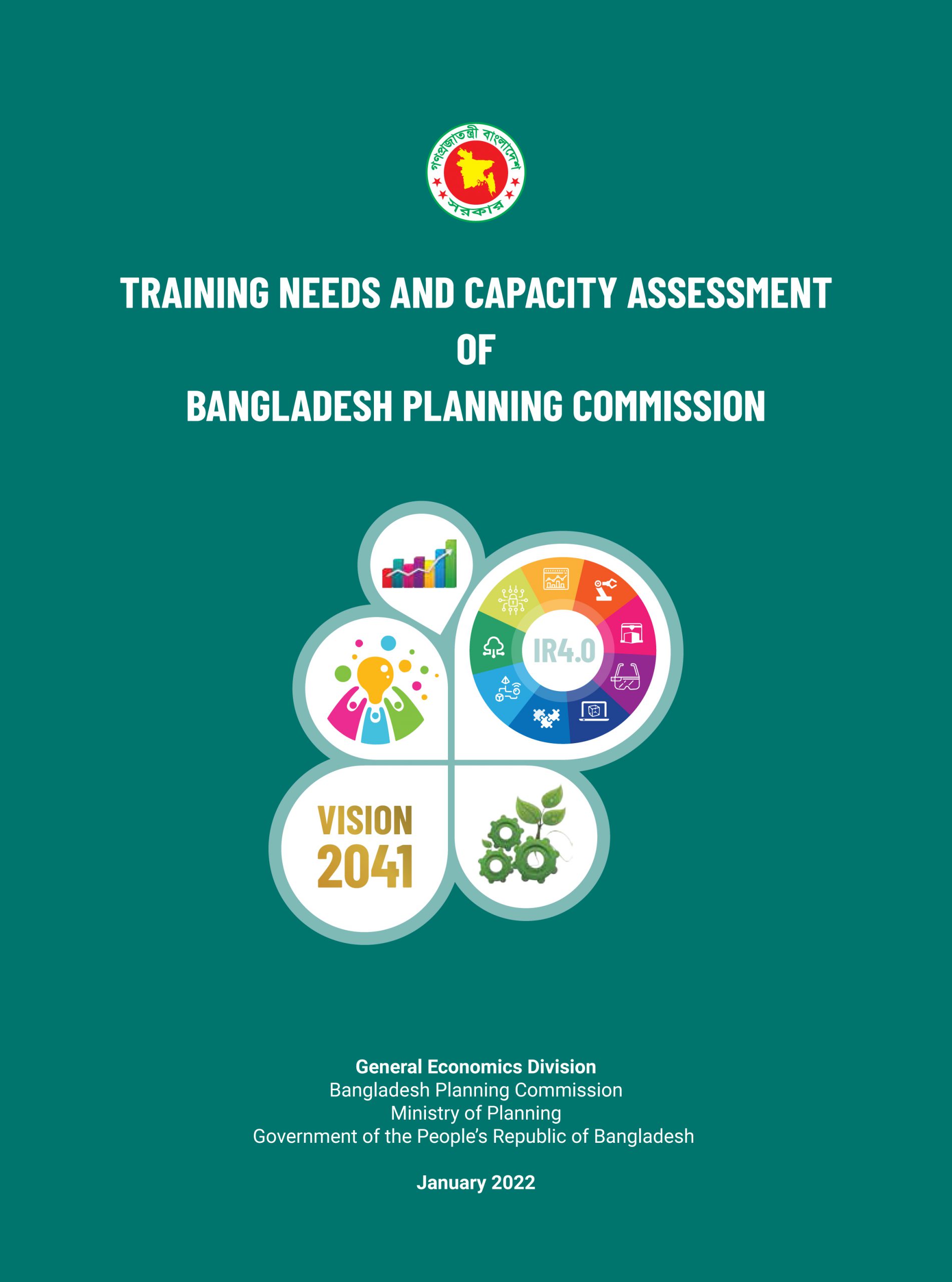Monograph 7: Population Management Issues
The General Economics Division (GED) acknowledges the valuable contribution of all concerned from the Ministries/Division, Development Partners, NGOs, and CSOs in preparing the Monograph-7. The GED carried out the task under the close guidance of the Hon'ble Member (Secretary), GED. I also appreciate the United Nations Population Fund (UNFPA) for providing necessary technical and financial support in preparing and printing the Monograph through the "Strengthening Capacity of the General Economics Division (GED) to Integrate Population and Development Issues into Plans and Policies (IPDIPP)" Project. The Monograph-7 has been prepared by compiling three policy papers and the outcomes of the policy dialogues conducted by the IPDIPP project on- i) Strategic Framework to Reap Demographic Dividend through the Implementation of the 8th Five Year Plan; ii) Addressing gender differentials in labor force participation to reap the demographic dividend in Bangladesh, and iii) Urban Sustainability Through Good Population Density Approach.


 August 24, 2022
August 24, 2022 


